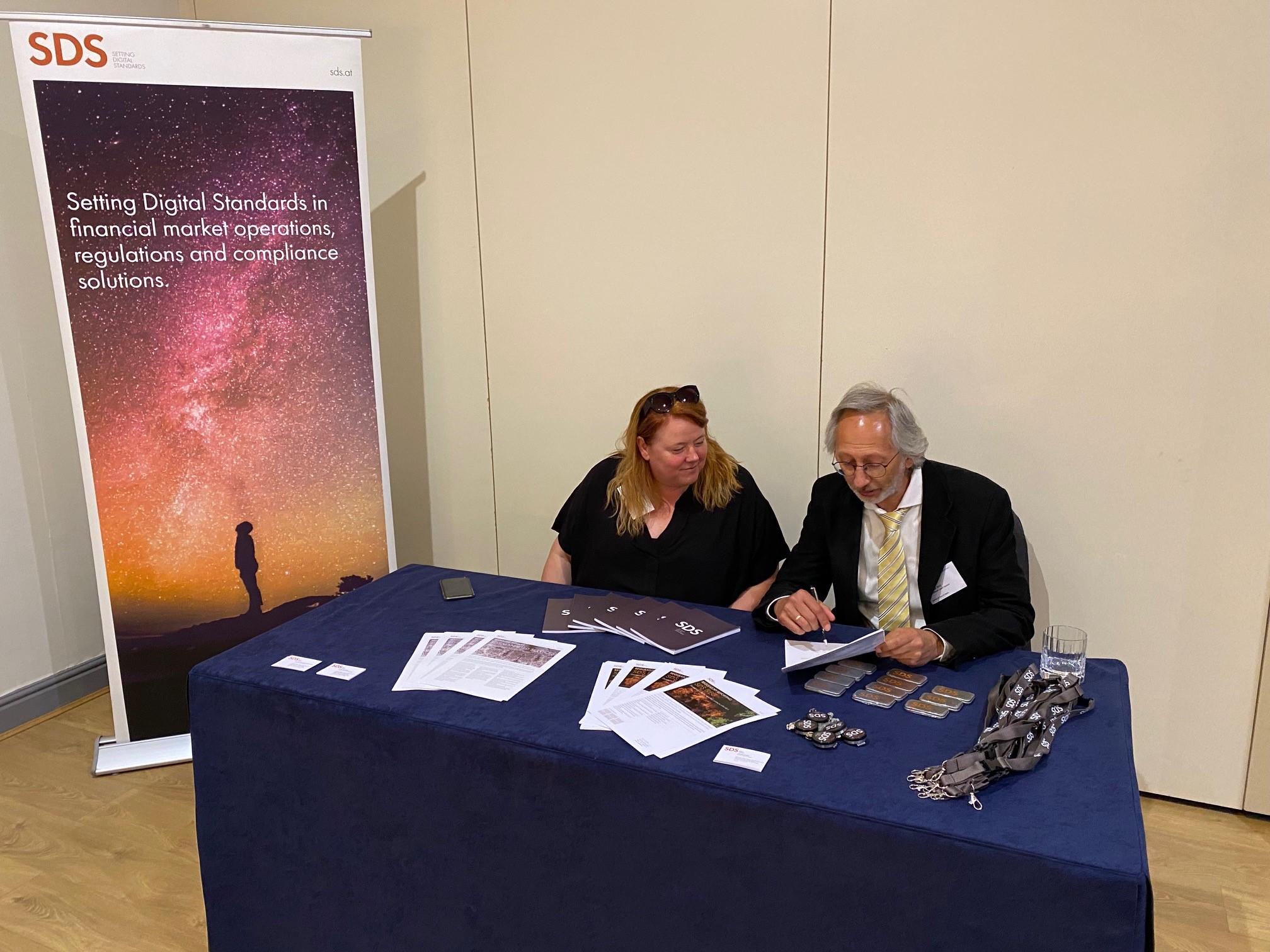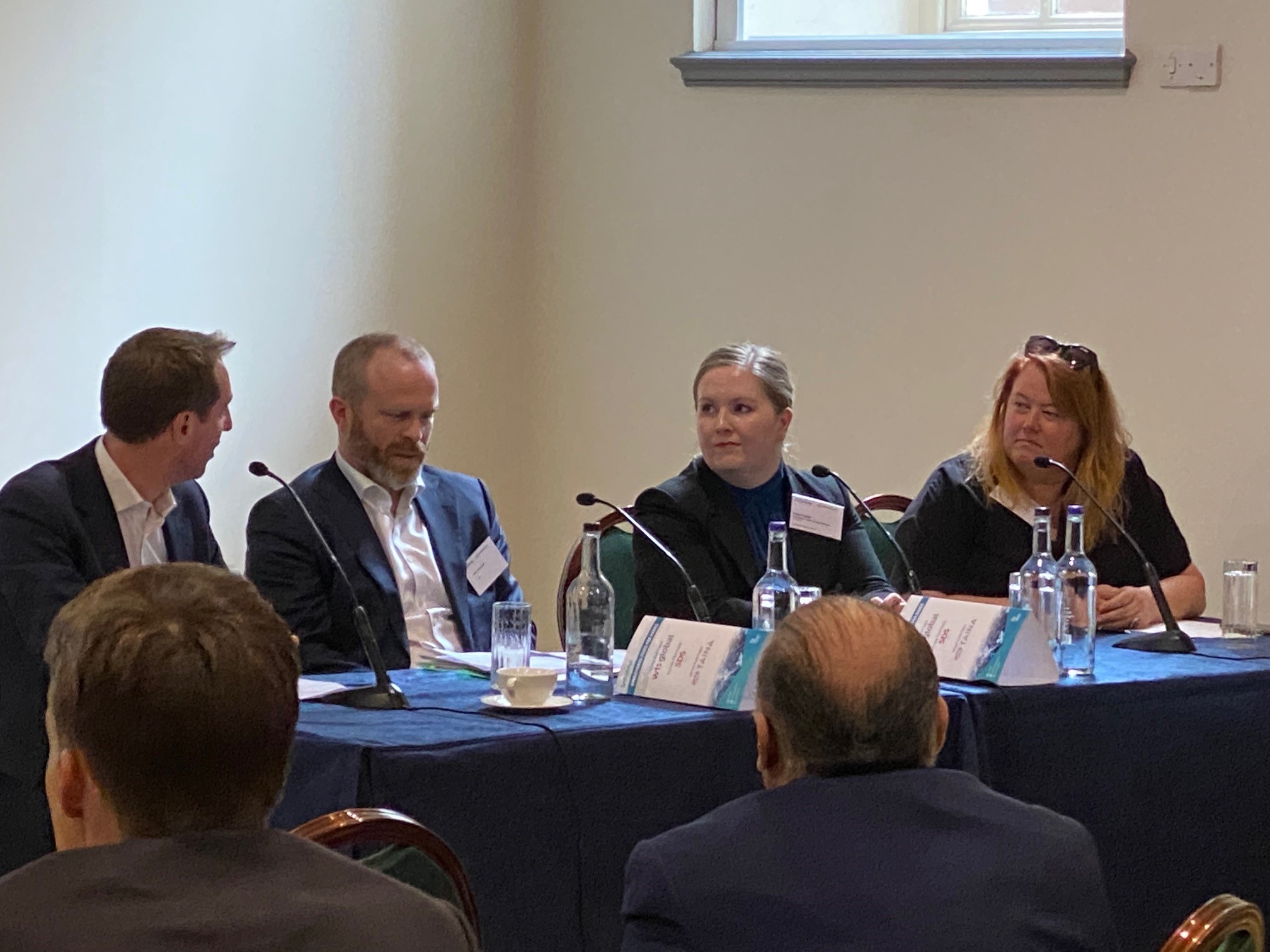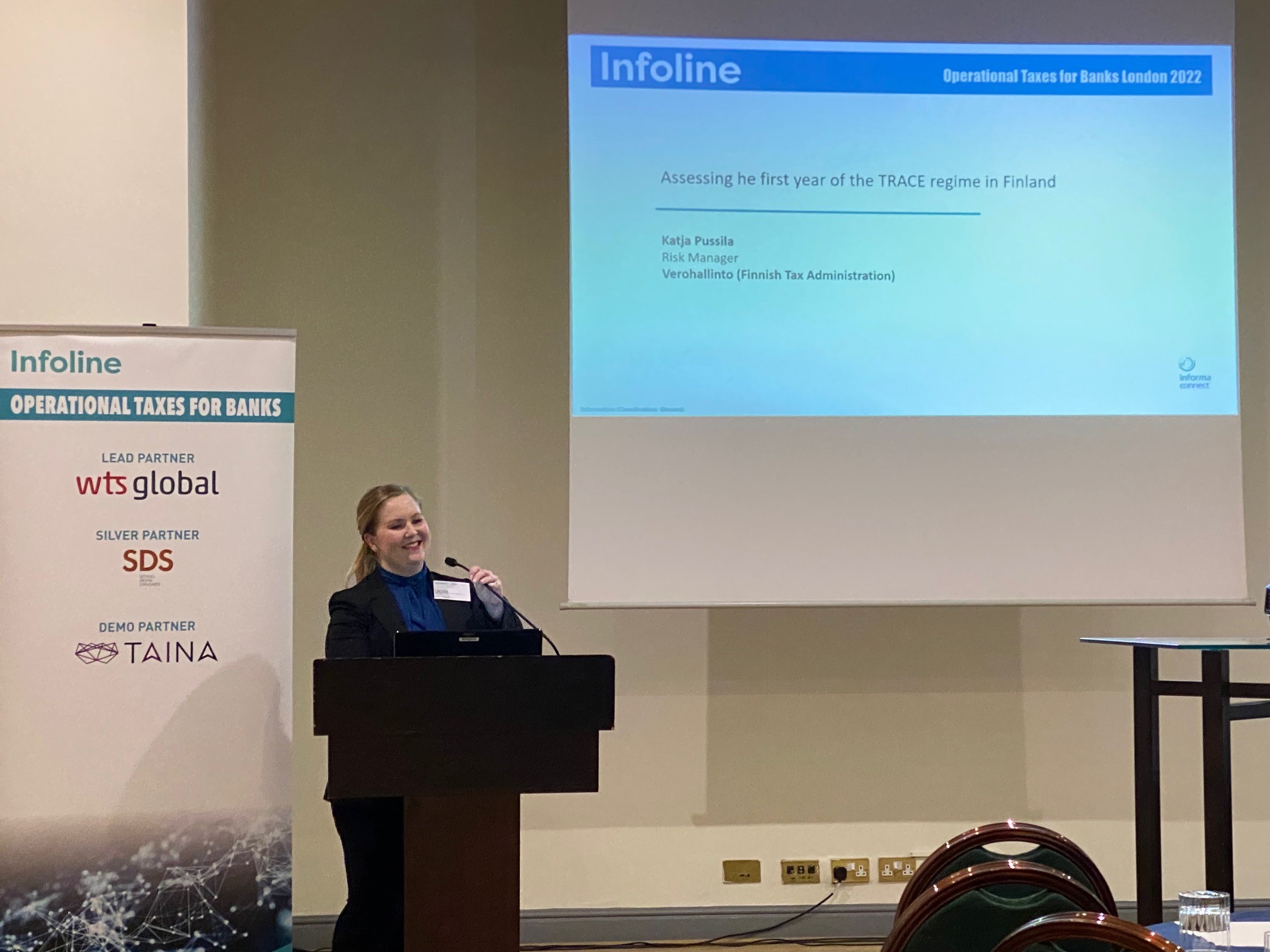The FSTC 2023 started with the welcome words of Ali Kazimi from Hansuke. After a brief review of the current political situation in the world, Ali Kazimi explained the challenges and issues which the financial industry is facing today and announced the conference sessions which will focus on those topics. Again, similar to last year, the conference was built as a series of panel discussions rather than teaching-style lectures. This provided an excellent platform for a very broad spectrum of experience exchange and allowed for the analysis of topics from different angles and perspectives. The audience participated very actively in all sessions by asking many very sophisticated questions from practice and discussed possible solutions together with the panelists. This significantly increased the practical value of every single panel discussion.
The first panel discussion dealt with today’s challenges and issues related to EU WHT reclaims. A panel of leading international experts, Steffen Gnutzmann from WTS Global as the moderator, Alexandre Maitrot de la Motte from the University of Paris, Jeroen Van Der Wal from Taxology and Rebecca Wilmott from JP Morgan discussed the legal and practical aspects of reclaiming discriminatory EU withholding taxes suffered on portfolio investments. EU Member States had introduced strict documentation and substantiation requirements for the eligible claims to be accepted. It was again very clear that despite the EU initiative for standardisation and simplification of the withholding tax reclaim procedures in the EU, better known under the acronym FASTER, there are still many unanswered questions out there. The most frequently mentioned concerns were still related to harmonisation of the procedures within the EU – with a clearly demonstrated concern to end up with 27 different documents and 27 different definitions which would have to be submitted to 27 tax authorities within the EU.
In the next panel, Jessalyn Dean led through the session as a moderator and Awa Diouf from the Institute of Development Studies, Danish Mehboob from Bloomberg Tax and Paul Aplin, former President of the ICAEW discussed the taxation of digital financial services and its impact on the taxation of traditional financial services. One of the most intense discussions developed around the question of whether there should be a difference between the taxation of digital and traditional financial services. After the very intensive discussions the panelists came to the final conclusion that it is inevitable that tax policy and administrative decisions must balance competing interests including fairness, inclusion and international development.
The Half-Time Summary: EU 1 – 0 UK sounds rather like an announcement for a football match than for a tax discussion. The Brexit discussion at the FSTC 2023 conference led by Tim Sarson from KPMG and joined by Patrick Reidy from Capital Group, Tapiwa Mashingaidze from Alcentra and Dr. Kunka Petkova from the German Federal Ministry of Finance was really a very interesting one and again raised the questions of whether the Brexit was the right decision for the UK and how it has influenced the development of the UK’s economy and especially the financial industry since then. We have heard some critical words on the Brexit strategy and economic development of the UK in general, but the panelists’ opinion regarding the financial industry has remained unchanged – the opinion that since Brexit London’s position as a financial centre has been marginally eroded in only some of the business lines (i.e. as the banking hub for the euro area), but in its role as an international financial centre, London has retained its top position.
After the lunch, which provided a very pleasant opportunity for networking, we continued with no less interesting topics compared to the morning sessions. Helen Whiteman from the Chartered Institute of Taxation moderated the panel with Inga Nitsche from iCapital, Dr. Kunka Petkova from the German Federal Ministry of Finance and Michel Braun from WTS Germany as the panelists. The first panel discussion in the afternoon had a very provocative title: “ChatGPT Eats Tax Professionals for Breakfast”. This topic drew huge attention of the audience and led to some very emotional discussions about the role of tax professionals today and their perspectives in the future. The question of whether the practice of tax is art or a science was raised. Since many claimed that only creative jobs would survive the onslaught of AI, the panel discussed how to survive as a tax professional in the world of automation, boosted productivity and AI. After a very lively discussion in the panel, complemented with a very strong involvement of the audience, the panel came to the conclusion that “ChatGPT has an insatiable appetite, but it’s not quite ready to eat us yet”.
One of the further hot topics on the agenda was the tax integrity across the financial services industry. Ali Kazimi moderated the panel with Sara Jespersen from the Copenhagen Business School and Sandra Martinho Fernandes from EBRD. The panelists discussed tax integrity as the final frontier of the tax profession and agreed that adopting human-centred tax integrity should be seen as essential in all firms. They should adopt it and develop approaches to reduce risks of misconduct and to foster genuine engagement, robust governance and a positive corporate reputation.
The last two sessions of the conference dealt with the taxation of private equity industry where the jurisdictional competition plays a very big role and the impact of current regulations and initiatives on the tax departments. Both sessions caused a strong involvement of the audience, which again proofed the very high relevance of all topics discussed at this conference.
CONCLUSION
The 5th edition of the FS Tax Conference also proved to be a highly desirable and robust platform for tax professionals, academics, tax authorities, journalists and leading industry practitioners for the exchange of information and opinions on current topics in the field of taxation from different angles and perspectives. It provided some in-depth insights into the practice of taxation, its daily challenges and issues and gave some orientation for the future.
SDS as a renowned technology and software solutions provider in the area of international tax and regulatory reporting for FATCA, CRS, QI, OECD TRACE and WHT with long-standing experience serving global financial institutions was delighted to sponsor this excellent industry event for the fifth consecutive year.
Observation by:
Feel free to contact me anytime for further information, an expert chat or any discussion about the topics mentioned above.






